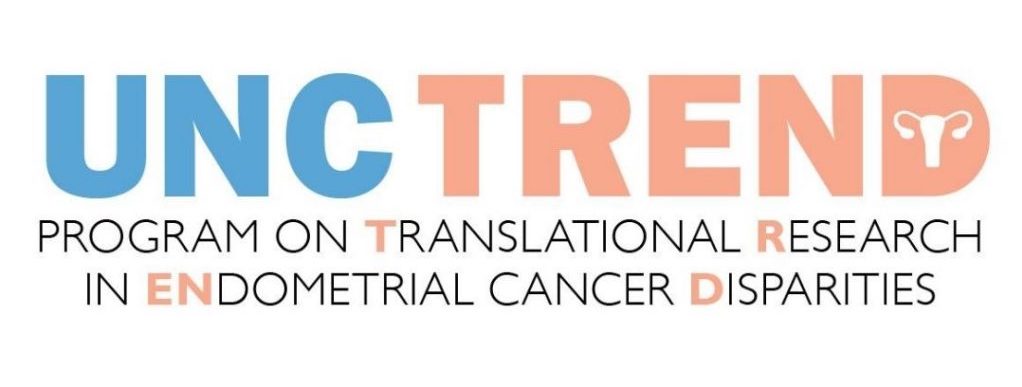About the PI
 Victoria L. Bae-Jump
Victoria L. Bae-Jump
MD, PhD
My research as a practicing gynecologic oncologist and translational cancer researcher at the UNC Lineberger Comprehensive Cancer Center focuses on understanding how obesity and (more recently) race affect ovarian (OC) and endometrial cancer (EC) development and progression, which may invariably dictate different risk-reduction strategies and treatment options.
I hypothesize that obesity directly or through modulation of the microbiome gives rise to cancers that metabolically and clinically differ from those arising in a non-obese environment. Thus, obesity-influenced GYN cancers may have unique vulnerabilities that I have investigated using many novel targeted therapies for obesity-driven OC and EC, including mTOR inhibitors, ONC201, PD-1 inhibitors, a human monoclonal antibody to the insulin growth factor-1 receptor (IGF-1R), soy/genistein, cox-2 inhibitors, statins, metformin, novel biguanides, as well as diet/exercise interventions.
My pre-clinical research [much of that using my laboratory-created Lkb1fl/flp53fl/f genetically engineered mouse model of endometrioid EC and also very recently patient-derived xenograft (PDX) mice] has led to several investigator-initiated clinical trials, including pre-operative window studies of metformin, atorvastatin, high intensity interval training and pembrolizumab in EC patients, a phase 1 trial of atezolizumab and ONC201 in advanced/recurrent EC patients, a phase II trial of metformin in combination with the levonorgestrel-intrauterine device in endometrial hyperplasia/cancer patients, a phase II trial of metformin (plus paclitaxel/carboplatin) in newly diagnosed OC patients, and a randomized phase II/III evaluation of paclitaxel/carboplatin/metformin versus paclitaxel/carboplatin/placebo in advanced and recurrent EC patients.
Given the disparate clinical outcomes experienced by Non-Hispanic Black women battling EC, in the last five years I have expanded my research focus to delineate the inter-relationships among obesity, race and EC pathogenesis and treatment, including emphasis on race-aligned genomic underpinnings and microbiota and metabolic exchanges that lead to potential race-correlated targets amenable to metabolic directed therapies.
Research Programs
 The Carolina Endometrial Cancer Study (CECS)
The Carolina Endometrial Cancer Study (CECS)
CECS is a population-based study of endometrial cancer that is being conducted statewide in North Carolina in conjunction with the Central Cancer Registry. CECS seeks to address two major disparities in the treatment of endometrial cancer.
 UNC TREND (Translational Research in Endometrial Cancer Disparities)
UNC TREND (Translational Research in Endometrial Cancer Disparities)
UNC TREND is designed to promote translational, laboratory, population, and clinical research to reduce cancer disparities in Non-Hispanic Black women with endometrial cancer. Through two research focus projects, the UNC TREND team will investigate the impact of various factors on endometrial cancer outcomes.

UNC Lineberger Endometrial Cancer Center of Excellence
The UNC Lineberger Endometrial Cancer Center of Excellence brings together an outstanding group of researchers, clinicians and staff to provide excellent multidisciplinary patient care and generate research discoveries that can be translated into new, more effective approaches and ultimately, cures for endometrial cancer.